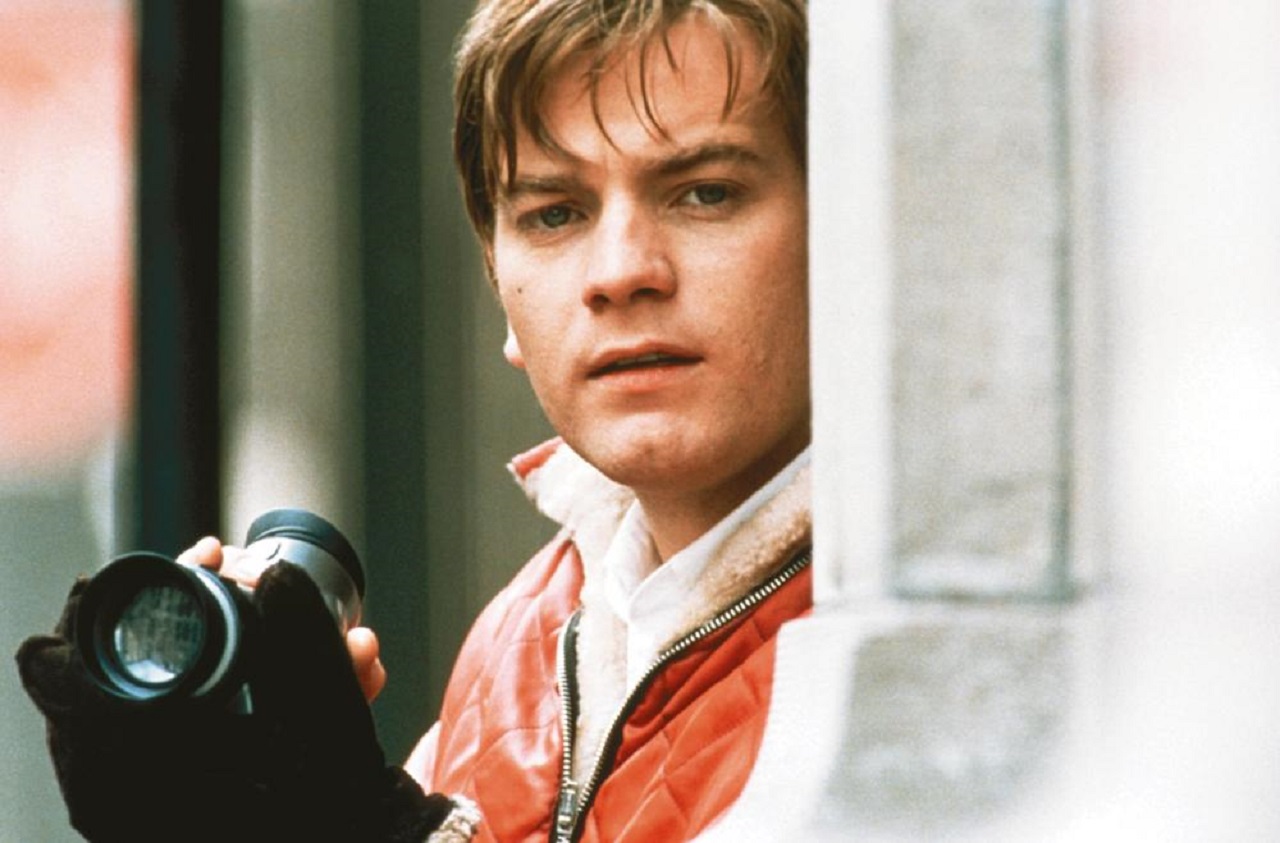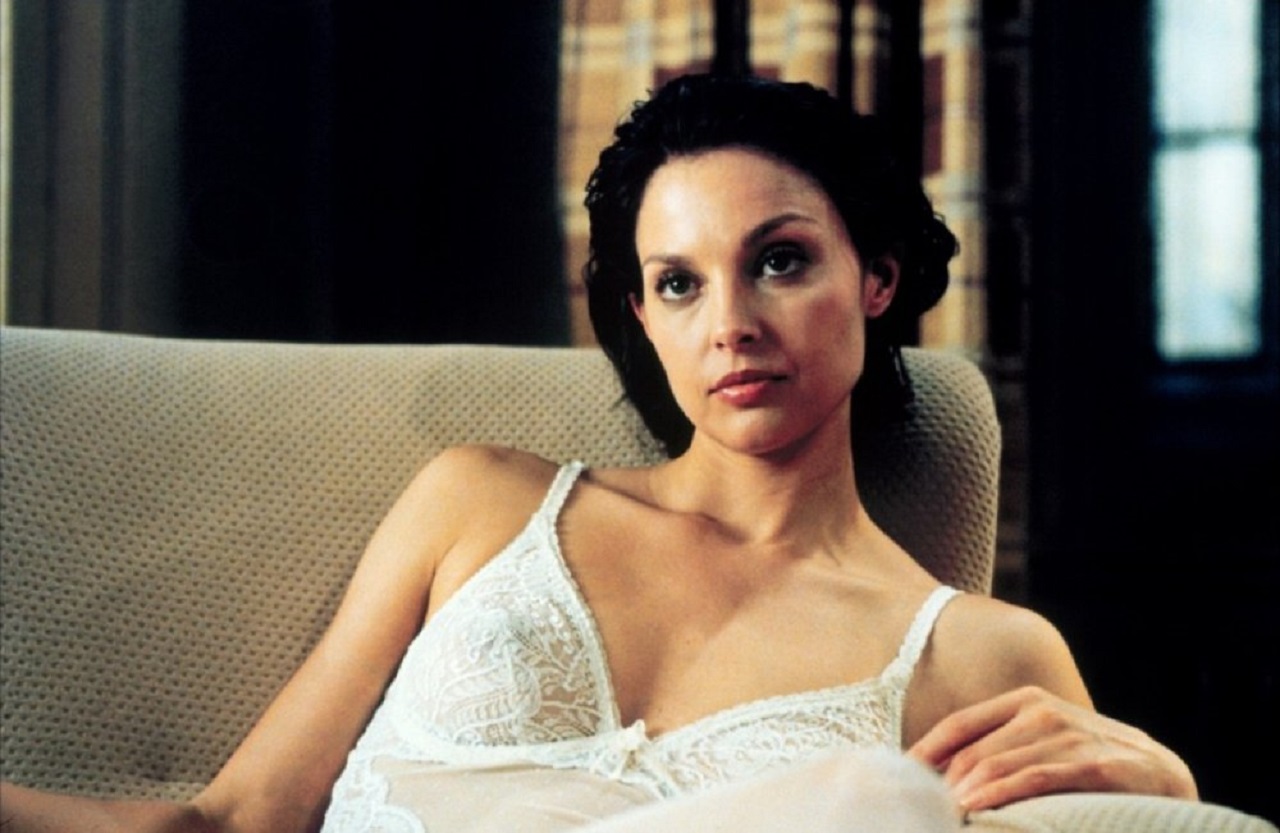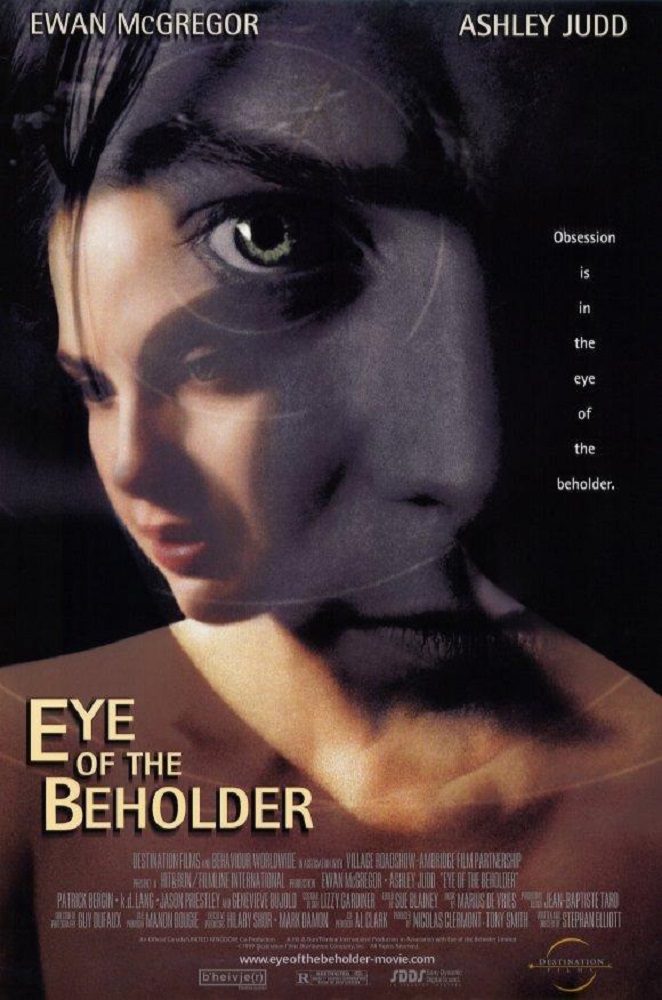Crew
Director/Screenplay – Stephan Elliott, Based on the Novel The Eye of the Beholder (1980) by Marc Behm, Producers – Nicolas Clermont & Tony Smith, Photography – Guy Dufaux, Music – Marius De Vries, Visual Effects Supervisors – Daniel Ledoux & George Jardoin, Special Effects – Les Productions de L’Intrigue (Supervisor – Jacques Langlois), Production Design – Jean-Baptiste Tard. Production Company – Filmline International/Village Roadshow/Ambridge Film Partnership/Behaviour Worldwide/Eye of the Beholder Ltd/Hit & Run Productions.
Cast
Ewan MacGregor (Stephen ‘The Eye’ Wilson), Ashley Judd (Joanna Eris), Patrick Bergin (Alex Leonard), Genevieve Bujold (Dr Jan Brault), Jason Priestley (Gary), k.d. lang (Hilary), Ann-Marie Brown & Kaitlin Brown (Lucy Wilson)
Plot
Stephen Wilson is a lonely surveillance expert working for British Intelligence, where he is code-named The Eye. He is haunted by his daughter whom he has never seen since his wife left him because he was never there. He is tailing one subject when the subject is killed by a beautiful woman he picks up. Stephen becomes obsessed with the mystery woman, abandoning his assignment to follow her as she crosses the USA, luring men and leaving a trail of bodies.
Eye of the Beholder is not a film that belongs in cinema release. Its true destination is the 50c video rental shelves, packaged with a salaciously teasing cover and pushed as a trashy pseudo-Basic Instinct (1992) thriller. Instead, Eye of the Beholder ended up in wide cinema release, something that only inflated its pretensions and absurdities for all to see. The surprise in this is that its distributor Destination Films was clearly expecting it to pass it out unannounced (there was no trailer or tv campaign) in US release in the dead zone of Superbowl Weekend, 2000, and get the maximum exposure its two stars, Ewan MacGregor and Ashley Judd, would allow it before word of mouth got around. To great surprise, it ended up becoming the No. 1 box-office hit of the weekend.
The plot suggests a blend of Francis Ford Coppola’s immensely underrated surveillance thriller The Conversation (1974) and Black Widow (1987), which featured Theresa Russell as a wig-changing, cold-blooded husband-murderer. If Eye of the Beholder has stayed on the path its plot suggests, it could have been passably compulsive – instead we end up with a thriller that seems to have no clear idea what it wants to do and ends up as a mishmash of pretensions and loose plot ends. The story frequently makes little sense.
One annoying plot device is having the central character’s daughter turn up as an Imaginary Companion with whom he keeps having conversations. It is an effect that, having sat through such phantom figures as Brad Pitt in Fight Club (1999) and Dustin Hoffman in The Messenger: The Story of Joan of Arc (1999) in the months just before Eye of the Beholder came out, has become tiresome, despite occasional visual cleverness to the appearances. Most irritating is the casual disregard with which the character is dropped – after being built up as a running character she suddenly announces “If you go, I won’t be coming back” and we never see her again – just like that.

The characters are laughably one-dimensional. Director Stephan Elliott offers up a brief childhood flashback about Ashley Judd’s character spending Christmas Eve with her father in a back alley as psychological motivation – but what exactly this has to do with Ashley Judd being a serial killer and shrieking “Merry Christmas, Daddy” every time she kills somebody is anybody’s guess. And then there is the abrupt non-ending where she crashes in a car, Ewan MacGregor rescues her and they lie conciling in the snow with the supposition left hanging that they will live happily ever after, despite the fact that just five minutes before she tried to shoot him.
A good deal of this made more sense in Marc Behm’s 1980 novel – there the character of The Eye was a lonely middle-aged man missing his wife and daughter who came to believe that the female serial killer he was pursuing might be his daughter. This makes far more sense in terms of character and the recurring father/daughter symbolism. Of course, the characters have been rewritten in favour of the box-office appeal of young, good-looking leads and this no longer makes sense.
No matter how much Stephan Elliott tries to dress the film up with pseudo-arty trick effects – like dissolving from the snow globes that Ewan MacGregor collects for his daughter into city locations – Eye of the Beholder is still a trashy B-thriller. As a film, it offers no character insights, no clear direction and purpose, not even the saving grace of the sordid psycho-sexual obsessiveness of a Basic Instinct. Ewan MacGregor is subdued and Ashley Judd lacks any depth – these are roles that could have been played by anybody at all. Cowpunk singer and famous Out lesbian k.d. lang makes a terrible acting debut as Ewan MacGregor’s technical backup.

Director Stephan Elliott previously had the hit of The Adventures of Priscilla, Queen of the Desert (1994) and has also made the comedy Welcome to Woop Woop (1997), the British period drama Easy Virtue (2008) and the comedies A Few Best Men (2011) and Easy Virtue (2018). Elliott made an interesting documentary about the making of the film, Swinging Safari (2000), in which we see in frank and amusing detail his battles in trying to get financing for Eye of the Beholder. If only the film we ended up with had been worth it …
The film is based on a novel by Marc Behm who had an interestingly varied career that included the script for The Beatles film Help! (1965), Bert I. Gordon’s The Mad Bomber (1972) and the Golan-Globus slasher film X-Ray/Hospital Massacre (1982).


